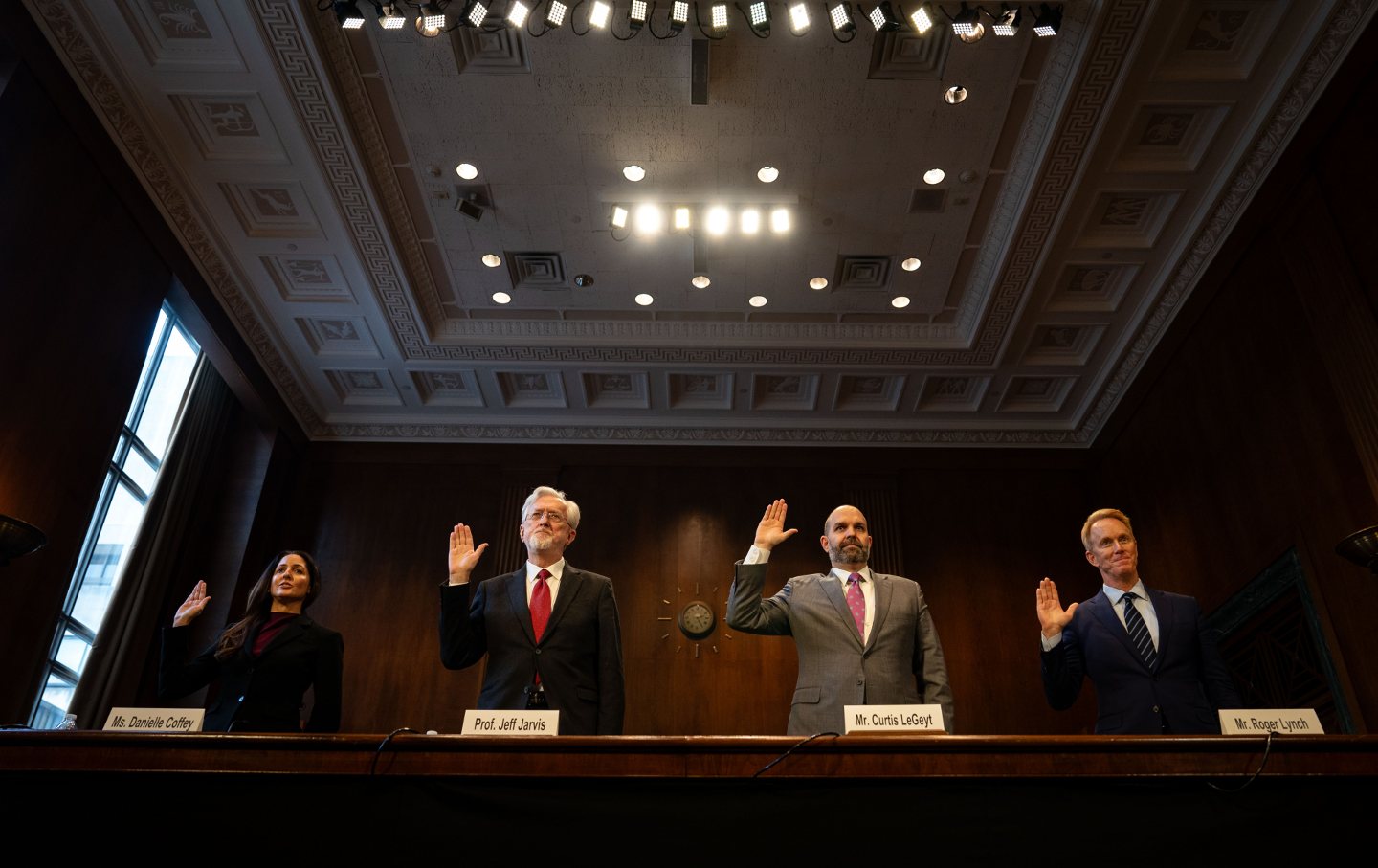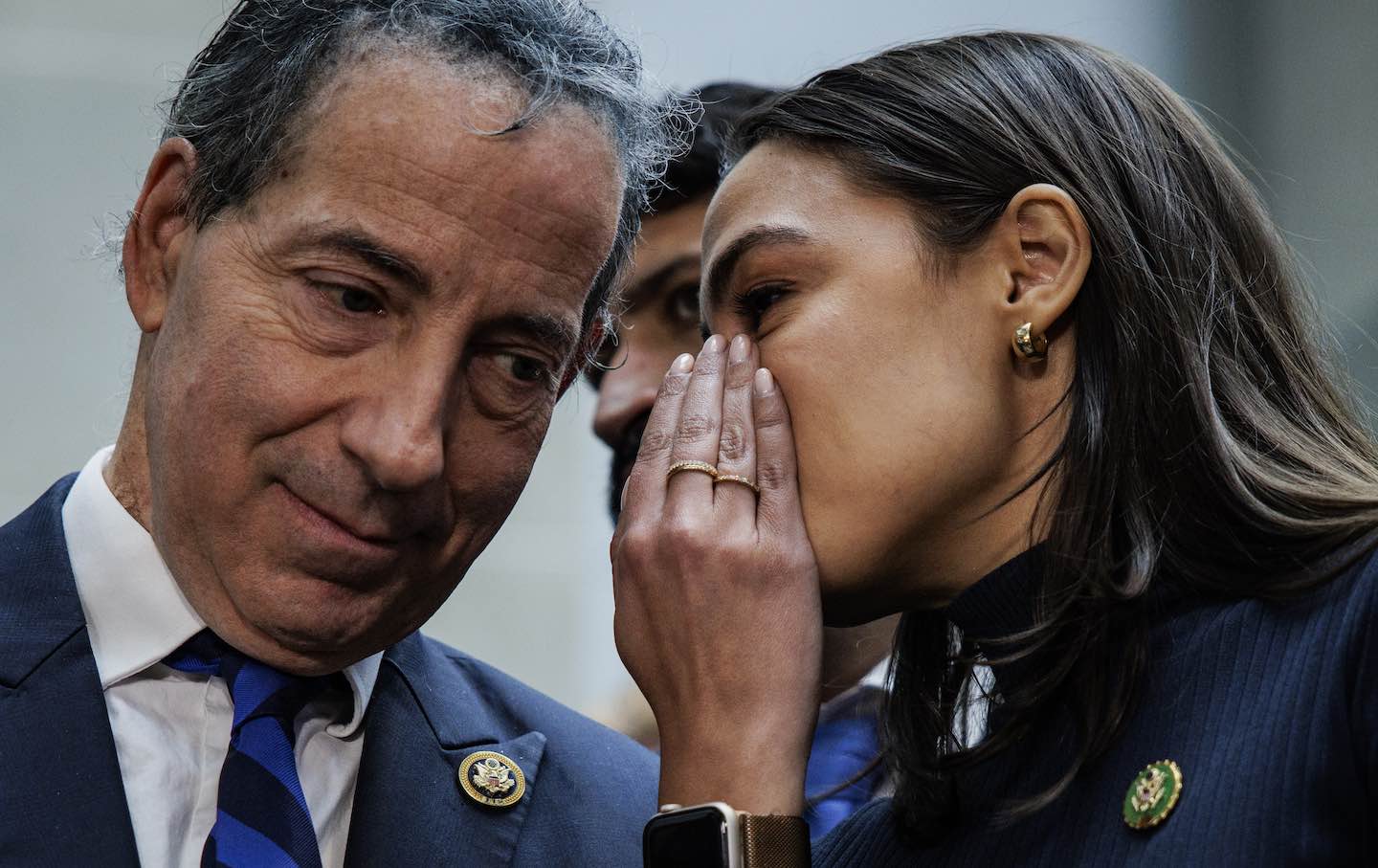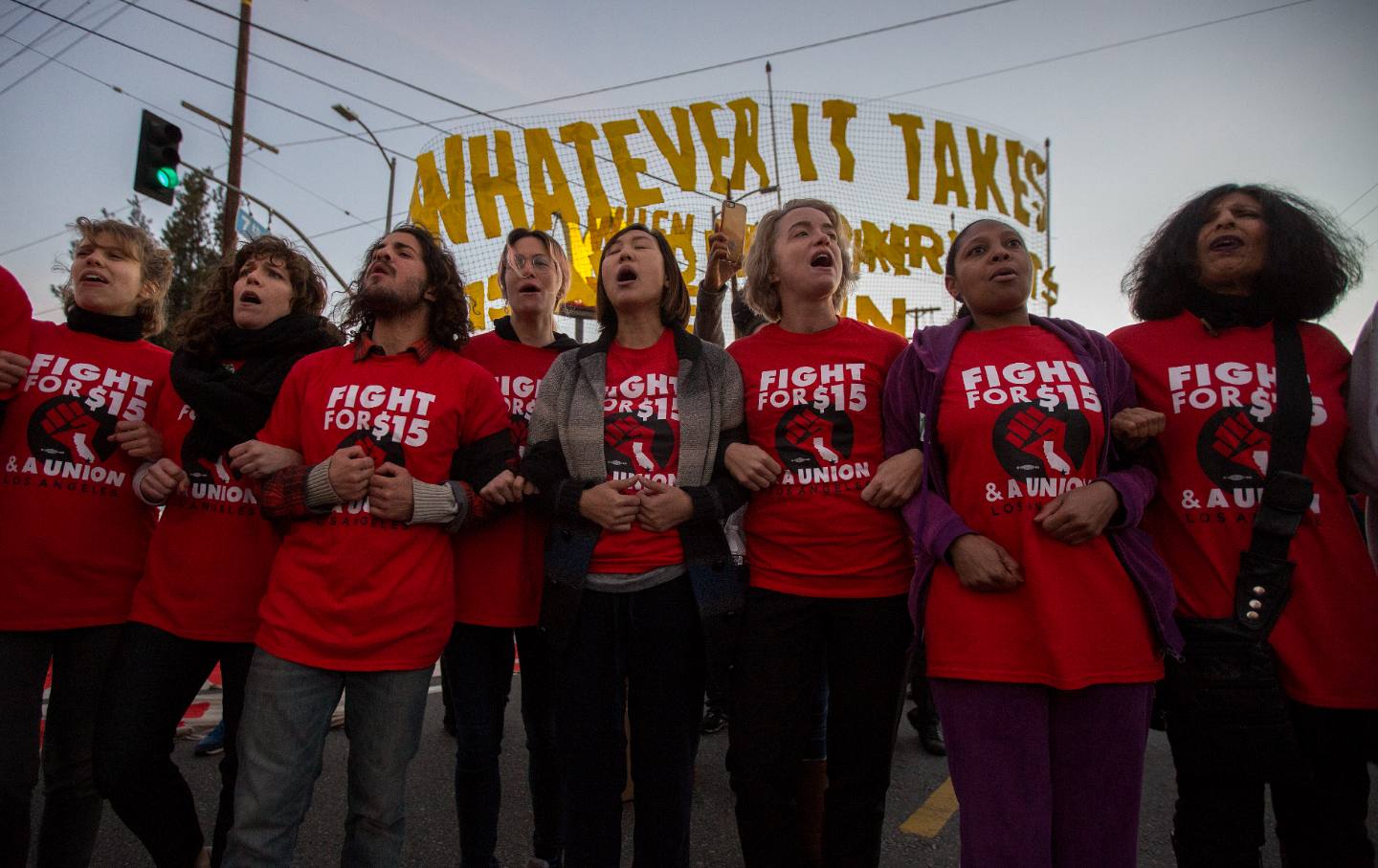How AI Is Transforming the Way Political Campaigns Work
The future is arriving—and we’d better watch out.

Ever since ChatGPT became the fastest-growing new tech platform in Internet history, I’ve been expecting artificial intelligence (AI) tools built using large language models (LLMs) to start to transform how political campaigns work. Well, that moment is here.
Much of the early attention on AI and campaigns has centered on how synthetic media, also known as “deep fakes,” will increase the supply of disinformation, further weakening democracies and potentially upending elections. Just last week, voters in New Hampshire reported receiving a robocall from a voice sounding like Joe Biden, urging people to not vote in the primary.
To the degree that legislators have started to focus on the impact of AI on politics, they’ve responded by trying to make campaigns disclose when they use synthetic media in political advertising. So far, the main response from tech companies is to add digital watermarks to political ads made with AI, to make them easier to spot. Such moves will only affect how official campaign committees operate; they don’t do anything about this new wave of anonymous dirty tricks.
But while videos with realistic replicas of Presidents Biden, Trump, and Obama have circulated widely, showing how easy it has suddenly become to put words into their mouths or pose them in compromising positions, this is just the froth at the top of a much bigger wave. AI is on the verge of changing the practice of campaigning itself.
I got a full blast of what’s coming not long ago, when I got a preview of VotivateAI, an impressive new tool that is emerging out of a joint venture between Votivate, LLC (a spinoff of the Working Families Party’s tech division) and a Louisiana-based AI start-up launched by a former ACORN organizer. By itself, Votivate is an alternative to VAN, the constituent-relationship-management software package that is ubiquitous on both the hard and soft side of liberal/progressive political engagement. The WFP initially built Votivate because in some states the Democratic Party would only give incumbents access to VAN.
VotivateAI is an attempt to leap-frog over existing campaign tools into the future. Three of its offerings stand out. The first, Campaign Assistant, may both appeal to and threaten professional campaign managers. Essentially, if you tell it some basic information about the race you’re involved in, including whether it’s a competitive race or a below-the-radar contest, how much has been raised, and so on, the tool will produce an in-depth campaign strategy memo, which it will continue to update as news develops and variables change.
Will campaign managers use it? Based on a beta sample that I saw, they should at least try it. That’s because campaign professionals can benefit from more opinions than their own and maybe getting the advice of an AI coach can only help. This isn’t the only example of progressives experimenting with training LLMs to do political coaching—New/Mode is also in the process of developing an AI Campaign Strategist for social good and advocacy campaigns.
Votivate AI’s second offering is a low-latency AI voice-calling tool that doesn’t need a precise script, but rather can work from an overview of the campaign to have a natural-seeming conversation. It’s an AI campaign volunteer; unlike a human, it can make thousands of calls without needing a break, or pizza. I listened to a three-minute recording provided by Nic Zateslo, Votivate’s chief operating officer, and the speed and intonation of the AI agent’s banter was quite impressive. It was far more versatile and human-sounding than the ethereal “Ashley” voice that Civox, a London-based start-up, has created for Shamaine Daniels’s congressional campaign in Pennsylvania.
Arguably, the availability of AI campaign volunteer callers could help level the campaign playing field for underdog candidates like Daniels, who says she’s excited about Ashley’s potential to help her reach more voters, understand them better, and connect in more languages (the bot speaks more than 20). “This is going to scale fast,” Ilya Mouzykantskii, the London-based CEO of Civox, told Reuters back in mid-December. “We intend to be making tens of thousands of calls a day by the end of the year and into the six digits pretty soon. This is coming for the 2024 election and it’s coming in a very big way.”
Do we want AI campaign volunteers taking over for human phone-bankers? Compared to auto-dialers, which deliver prerecorded messages, AI callers are far more versatile. And unlike human volunteers, an AI caller can be trusted to stay on message (assuming the tool doesn’t “hallucinate” and the recipient of the call doesn’t try to bait it into silliness). But if campaigns start using AI this way, voters may recoil, worsening a problem we already have thanks to all the unwanted e-mails, texts, and calls they already get. Will campaigns use AI callers to free up human volunteers for more labor-intensive tasks like door-knocking? Or will they make less of an effort to get volunteers in the first place, since they won’t need them as much? A rich candidate with no actual base could buy an army of these things.
There’s an even more troubling question, which also arises around VotivateAI’s third offering: using AI to automatically create high-quality individualized media aimed at moving voters to action. If campaigns now gain the ability to create unique video messages for specific people and to do so quickly, cheaply and at scale, the potential for abuse is enormous. While campaigns may justify this approach since it can help them win elections—and who doesn’t want to find the best way to successfully reach a voter?—hyper-personalized campaign messaging will give politicians who already like to pander to voters the ability to sneakily be all things to all people.
The team at Votivate say they are committed to make sure their tools are only used by progressive candidates and to fight against fascism, to their credit. The founders of Civox also say they intend to mainly work with Democratic campaigns and candidates. (Unspoken are all the opportunities to make money selling these services to businesses.) Unfortunately, one of the most important lessons of the last decade also applies here. Bad actors, including foreign adversaries, will also use these tools.
This means the political waters we swim in are only going to be more polluted. Voters are going to need to be vigilant and, hopefully, more people will share what they are seeing in their inboxes and hearing on their phone lines, which could make it harder for personalized campaigning to tip over into blatant pandering and manipulation. But there’s no simple solution to the use of AI to power campaigns; the future is arriving, and we all had better watch out.
More from The Nation

Democrats Are Overdue for New Leadership Democrats Are Overdue for New Leadership
To mount an opposition under the coming Trump administration, the party needs new ideas—not the same establishment clinging to power.

Why Democrats Are Losing Americans Without a College Degree—and How to Win Them Back Why Democrats Are Losing Americans Without a College Degree—and How to Win Them Back
Voters intuitively know that the economy has not worked well for most of us for decades. Democrats must offer them a transformative vision, and stick to it for as long as it takes...






